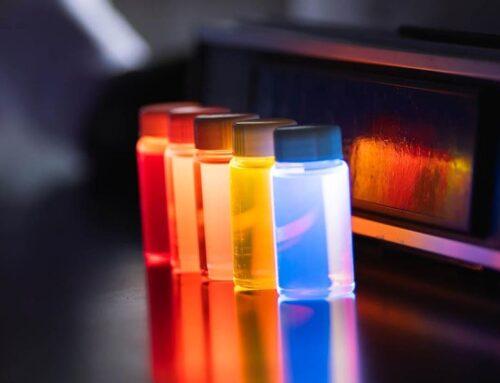POWER Digest [October 2025]
September 30, 2025
![POWER Digest [October 2025]](https://www.powermag.com/wp-content/uploads/2025/04/fig1-abb-geothermal-power-adobe-stock-300x200.jpeg)
Geothermal Plants Planned for Indonesia. Two business conglomerates with interests across Asia announced a partnership to build six geothermal power plants in Indonesia. A unit of Sinar Mas, along with a division of the Philippines’ First Gen Corp., in late August issued a joint statement that said the companies would invest about $2.2 billion for the facilities, which would have combined generation capacity of about 440 MW. The six fields would be developed in West Java, Flores, Jambi, West Sumatra and Central Sulawesi, the partners said. Indonesia has about 40% of the world’s geothermal reserves, but authorities said only about 10% of that capacity has been developed. “Our goal is to strengthen national capacity in geothermal development and to fully harness the country’s natural potential for clean energy,” DSSR President Daya Mas Sakti Lokita Prasetya said in the statement. DSSR Daya Mas Sakti is an Indonesian energy company that has partnered with the Philippines’ Energy Development Corporation (EDC) to develop and manage geothermal power resources. The EDC currently owns and operates more than a dozen integrated geothermal power stations across the Philippines with a combined installed capacity of 1,189 MW.
Japan May Use AI to Support Nuclear Inspections. Japan’s Nuclear Regulation Authority is looking into the use of artificial intelligence (AI) to support inspections of the country’s nuclear power plants. The government recently said it would include research costs for AI development in its budget request for 2026. Officials in February of this year, as part of the latest Basic Energy Plan, said that the specific plans for the replacement of nuclear reactors would include optimized inspections. Kansai Electric Power in July said it would resume geological surveys and other activities at the Mihama Nuclear Power Plant in Fukui Prefecture as it prepares to replace the site’s current equipment with next-generation reactors. The Nuclear Regulation Authority said detailed inspection methods for ensuring the safety of next-generation reactors have not been finalized, but said it expects there will be a need for more inspections as the country brings older reactors back online—Japan suspended operations of all the country’s reactors after the Fukushima incident in 2011—and replaces older reactors with new technology. The agency said the use of AI would support inspections, which currently are challenged by a lack of available staff. Officials said the AI could study past inspection documents to help determine future needs.
Canada Community Solar Projects Receive Grants. PowerBank Corp. in August said three of its community solar projects in Nova Scotia in Canada—Sydney, Brooklyn, and Petpeswick—were granted $1.74 million in funding through the Nova Scotia Department of Environment and Climate Changes, provided by the Nova Scotia Department of Energy and managed by the Net Zero Atlantic program. Net Zero Atlantic is a research organization with a team of scientists, engineers and project managers working to support the energy transition and respond to climate change. Their purpose is to advance a sustainable and inclusive transition to a carbon-neutral Atlantic Canada by 2050 through the provision of credible and objective data and support services. The projects are 48% owned by AI Renewable Flow-through Fund, and 52% owned by a non-profit organization or Potlotek First Nation. PowerBank is the lead developer and builder for the projects, and is partnering with Nova Scotia engineering firm Trimac Engineering to deliver the projects. PowerBank also is active in community solar development in the U.S., and is now working in Canada as that country’s market for community solar develops. The Nova Scotia Community Solar Program (CSP) is the first CSP in Canada, supporting the province’s commitment to 80% renewable energy by 2030, and for its electricity grid to reach net-zero by 2035.
BESS Projects Move Forward in Spain. Global energy storage owner-operator BW ESS and Spanish energy storage developer Ibersun have signed a joint venture to develop, in its first phase, several utility-scale battery energy storage system (BESS) projects across Spain. The Spanish battery energy storage market is growing, and the country’s National Integrated Energy and Climate Plan has a target of 22.5 GW of BESS deployed by 2030. Spain’s need for energy storage capacity is being driven by the increased use of renewable energy resource, including solar and wind power, and has been intensified by the limited interconnection between the Iberian peninsula and neighboring areas of Europe. The joint venture, targeting greenfield, four-hour duration assets, will initially include a 2.2-GW pipeline of eight projects across Spain, owned equally by BW ESS and Ibersun. The latter company has been developing renewable energy projects in Spain since being founded in 2019, with a focus on solar, and more recently on BESS. BW ESS is a global energy storage owner-operator and is developing energy storage projects across multiple countries, including the UK, Australia, Italy, Germany, Sweden, and Spain.
Odfjell Has Contract for German Geothermal Project. UK-headquartered Odfjell Technology in late August announced the company has signed a two-year contract with Germany’s Vercana GmbH, Vulcan Group’s drilling subsidiary. Odfjell Technology will provide tubular running services (TRS) to Vulcan Group’s Phase One Lionheart Project in Germany. That project aims to produce lithium sustainably by combining harnessed geothermal energy with critical mineral extraction. Odfjell Technology’s drilling tool rental and TRS solutions will service the onshore geothermal project, located at Vulcan Group’s Phase One site near Landau in the Upper Rhine Valley. Germany’s geothermal energy market is experiencing rapid expansion as part of the country’s renewable energy transition. “This partnership with Vercana represents Odfjell Technology’s commitment to supporting the energy transition and expanding its involvement in green technology development,” said Alex Gomoescu, VP Continental Europe Well Services at Odfjell Technology. “Odfjell’s proven track record in geothermal drilling makes us well-placed to support this developing sector that addresses Germany’s sustainability and energy security priorities.” Marco Koepsel, managing director of Vercana, said, “With Odfjell Technology, we have a proven partner supporting our project with reliable technology and operational strength. Together, we are driving forward sustainable lithium production and contributing to the growth of renewable energy in Germany.” The contract began in May of this year and is being serviced by Odfjell Technology’s Netherlands hub.
Contracts Awarded for Romania’s Largest Wind Farm. More contracts were recently awarded for construction of a 461-MW wind farm development in southeast Romania. Rezolv Energy, which is supported by energy investment group Actis, said it is ramping up activity at the two-phase project after securing as much as $387.5 million in funding. The company also signed a turbine purchase agreement with Vestas for the 269-MW second phase of the project. Vestas is expected to supply 42 of its EnVentus V162-6.4 MW turbines, with delivery scheduled for the second half of 2026. Vestas also is contracted to provide the project with operations and maintenance services for 15 years. Rezolv awarded a balance of plant contract to PORR, an Austrian infrastructure group, that will cover civil engineering and high- and medium-voltage electrical engineering. Construction of the second phase is moving forward, with commercial operation of the wind farm expected by late 2027. The first phase is expected to come online in the first half of next year. The project once complete will be the largest wind farm in Romania.
Block Energy Completes Pilot Injection for Eastern Europe CCS Project. UK-based oil and gas group Block Energy plc in late August announced completion of the company’s initial injection of carbon dioxide as part of a carbon capture storage (CCS) project in Georgia in Eastern Europe. “We are proud to have delivered the region’s first successful CO 2 mineralization injection pilot, having done so through our own cash resources,” said Paul Haywood, Block Energy CEO. “This represents an important milestone for Block, Georgia and our partner on the pilot project, Indorama, as we seek to demonstrate the viability of large-scale, low-cost CCS.” Prakash Kejriwal, group director of Indorama Corp., said, “This pilot provides valuable insights into how carbon capture and mineralization can be applied on an industrial scale, helping reduce emissions and align with future EU carbon regulations.” Block Energy said that during the pilot injection, a total of 13.6 metric tons of liquid CO 2 was injected into the reservoir along with 300m3 of water and sodium fluorescence tracer at pressures of 120 to 130 bar. The successful injection of CO 2 is the first mineralization project of its kind in the broader Eastern European region and positions Block as a first-mover in the space. A detailed monitoring and verification plan is in place and underway in which Block Energy is collecting subsurface samples, and analyzing data, to determine if the injected CO 2 has mineralized into solid calcium carbonate (and can therefore be permanently stored). Block said that unlike “conventional” carbon storage technology, the CO 2 is converted in the reservoir through reactions in the reservoir minerals into solid rock, and therefore the requirement for high-cost monitoring and verification procedures (such as 4D seismic) is not required. It is expected that it will take four to six months to determine if the CO 2 has successfully mineralized in the reservoir, enabling the project to them move forward.
—Darrell Proctor is a senior editor for POWER.
Search
RECENT PRESS RELEASES
Related Post




